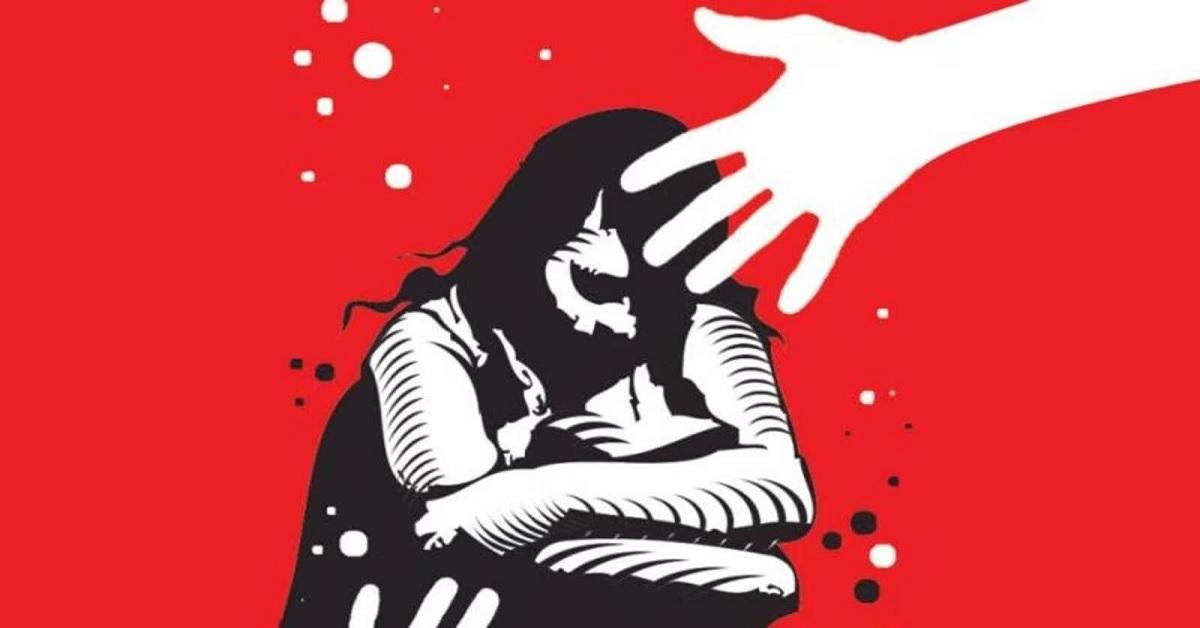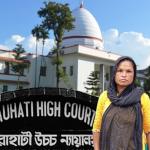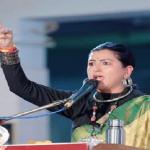
Two Dalit and Tribal girls brutalised in Andhra Pradesh: Pattern of caste violence exposes deep-rooted injustice From the two-year gang-rape of a 15-year-old Dalit girl to the public torture of a 10-year-old Adivasi child, Andhra Pradesh reels under the weight of caste atrocities, bureaucratic silence, and political blame games
23, Jun 2025 | CJP Team
Two horrifying cases of violence against minor girls from marginalised communities in Andhra Pradesh have shaken the conscience of the state. In one, a 15-year-old Dalit girl was allegedly gang-raped by 17 men over a span of nearly two years, leaving her eight months pregnant. In the other, a 10-year-old Adivasi (Scheduled Tribe) girl was brutally assaulted—stripped and burned with a hot stick—on the mere suspicion of stealing a mobile phone.
Both cases have exposed the terrifying impunity with which caste- and tribe-based violence continues to unfold, and the utter failure of systems meant to protect vulnerable children. As outrage grows, questions are being raised not just about the perpetrators, but about a state structure that remains indifferent to the safety and dignity of its most marginalised.
CJP is dedicated to finding and bringing to light instances of Hate Speech, so that the bigots propagating these venomous ideas can be unmasked and brought to justice. To learn more about our campaign against hate speech, please become a member. To support our initiatives, please donate now!
10-year-old Adivasi girl stripped and burned
Even as outrage over the gang-rape case mounted, another incident emerged from a different part of Andhra Pradesh—this time allegedly involving a 10-year-old tribal girl from the Scheduled Tribe (ST) community. The child was falsely accused of stealing a mobile phone. In a disturbing act of mob violence and humiliation, she was allegedly stripped of her clothes and her body was burned with a hot stick, inflicting grievous injuries.
As per a report of NDTV, the child, Chenchamma, lived with her aunt, Sannari Manikyam, at the Scheduled Tribe Colony in Kuditepalem Kakarla Dibba of the district. Suspecting that Chenchamma stole a mobile phone from a nearby house, the neighbours allegedly burned her body with a hot iron rod and beat her.
As per the report of the Indian Express, the police in Indukurupet Mandal in Nellore detained at least two people in connection with the alleged torture of the girl. Other neighbours heard the girl’s cries when she was allegedly being burnt with a hot iron rod on her cheeks. They rescued her and called the police before shifting her to a government hospital, where she was given treatment and discharged.
“The girl denied going to the neighbour’s house, let alone stealing a phone, and claimed innocence. We have registered an FIR and detained two people for questioning,’’ an officer from the Indukurupet police station said, as per the IE report.
Two years of silence: Minor Dalit girl raped for two years by 17 individuals
In a case that has exposed the horrific intersections of caste, gender, and institutional apathy, a 15-year-old Dalit girl from Sri Satya Sai district in Andhra Pradesh has been found eight months pregnant after allegedly being gang-raped by 17 individuals over a period of nearly two years. The abuse, police say, began when the girl was just 13 years old and continued in silence—unreported and unchecked—until earlier this month, when her mother finally approached the authorities.
Thirteen of the 17 accused have been arrested so far, including three minors. The main accused, who is believed to have initiated the cycle of abuse, remains absconding. All the adult accused have been remanded to judicial custody, while the minors are under the jurisdiction of the Juvenile Justice Board. A case has been registered under several stringent provisions of the Protection of Children from Sexual Offences (POCSO) Act, the Scheduled Castes and Scheduled Tribes (Prevention of Atrocities) Act, the Bharatiya Nyaya Sanhita (BNS), and the Information Technology Act, 2000.
A cycle of exploitation and silence: According to the police investigation, the abuse began when the girl was studying in Class 8. After her father’s death three years ago, she and her mother—belonging to the Madiga (Scheduled Caste) community—had moved to a small village near the Karnataka border. The family, impoverished and socially marginalised, was struggling to survive.
As per the report of India Today, one day, after school, the girl and her SC classmate were reportedly photographed by a member of the local Boya community. The Boyas are a dominant and politically influential caste in the region. The accused used these images to blackmail the girl, threatening to release them on social media. Two men then sexually assaulted her. The incident was filmed and circulated among their acquaintances, leading to a pattern of repeated rape by at least 14 men over two years.
The remand report and survivor’s statement reveal that the blackmail, coercion, and threats never stopped. As per a report of the Indian Express, “It was her age, her caste, and her social vulnerability that made her easy prey,” said District Superintendent of Police V Ratna. “The exploitation was systematic and prolonged. This was not just one incident, it was organised abuse that continued for two years.”
The men who allegedly assaulted her are aged between 18 and 51. Most of them belong to the Boya community, while three others, including her classmate, are from the SC community and are being investigated for failing to report the abuse.
Arrests and charges: On June 9, police arrested six individuals:
- Achampalli Vardhan (21)
- Talari Murali (25)
- Badagorla Nandavardhan Raj alias Nanda (23)
- Arencheru Nagaraju alias Haryana Cheruvu Nagaraju (51)
- Boya Sanjeev (40)
- Budida Rajanna (49)
Seven others were arrested the following day, including minors. The main accused remains at large. Police say several of those arrested already have criminal records. A special investigation team has been formed under Dharmavaram subdivision to trace the absconding accused, as per The Week.
The case has been registered under sections related to rape, gang-rape, criminal intimidation, and the use of technology for exploitation. The police have also sought permission for a DNA test on the unborn child, which will be critical for the prosecution.
Systemic failure at every level
This case has laid bare deep institutional failings. Despite being a government school student, the girl dropped out of Class 10—a critical academic year—without her teachers raising any concern or notifying authorities. “It is unimaginable that a child disappears from school and nobody asks why,” said SP Ratna, as reported by IE. “Even after she became visibly pregnant, nobody in the village reported it.”
Local welfare structures, too, failed to intervene. The Grama Mahila Samrakshana Karyadarsi, a village-level cadre of women volunteers who serve as ‘Mahila Police’, did not conduct any welfare checks. Neither did Accredited Social Health Activist (ASHA) workers, who are supposed to monitor maternal and child health at the community level.
“We are looking into these failures. These systems are in place specifically to protect vulnerable children. Their inaction has consequences,” Ratna added, according to the IE report.
Caste, power and pressure to stay silent: According to local officials, who spoke with the IE, the caste dynamics in the village were crucial in enabling the silence. The survivor’s family belongs to the Madiga community, a Scheduled Caste group with minimal presence in the village. Of the 17 accused, 14 belong to the powerful Boya community. Police say that when the case began to unravel, Boya community leaders attempted to suppress it by pressuring the girl to marry her SC classmate—one of the minors now under investigation—to give the appearance of consent and close the matter.
“Despite the survivor being visibly pregnant, no one reported the crime. The silence of the village was not accidental—it was imposed through caste hierarchies and social fear,” said a senior official involved in the investigation as per the IE report.
Ongoing care and state protection: As per the report of Deccan Herald, the survivor is now under medical care at the Government General Hospital in Anantapur. Doctors have confirmed that abortion is not an option due to the advanced stage of pregnancy. The girl, who is anaemic and struggling with depression, is receiving counselling, nutritional support, and round-the-clock care.
She will not be sent back to the village after delivery. Instead, both mother and newborn will be shifted to a state-run women’s shelter. “We fear coercion. Even from jail, these men could pressure the family to withdraw the case,” the SP said, as per IE report.
The state has also moved to obtain court permission for DNA testing of the unborn child. Police say this will strengthen the case and help establish individual responsibility among the accused.
Political fallout: The case has triggered political controversy and public outrage. Andhra Pradesh Chief Minister N. Chandrababu Naidu expressed shock over the incident, calling for swift investigation, speedy trial, and strict punishment for the accused. “Strong evidence must be collected to ensure that the guilty do not escape justice,” he said in a statement.
Opposition leader and former Chief Minister Jagan Mohan Reddy of the YSR Congress Party, however, accused the TDP government of shielding perpetrators with political links. In a post on X (formerly Twitter), Reddy wrote: “As an indicator of Govt’s insensitivity, the state has witnessed 188 rapes and 15 rape-murders in one year. Even recently, an Intermediate tribal student from Anantapur was found murdered and dumped in the woods after a brutal attack.”
Systemic negligence and caste impunity
The intersection of caste, poverty, and gender has made SC/ST girls disproportionately vulnerable to abuse. Both these cases reveal not just individual acts of brutality, but a pattern of systemic neglect, caste dominance, and institutional collapse. In the Dalit girl’s case, school teachers failed to follow up on her sudden dropout in Class 10. ASHA workers, Mahila Police volunteers, and child protection officials did not intervene despite visible red flags. In the tribal child’s case, the violence remained hidden until the neighbours raised an alarm.
The lack of early intervention, social stigma, and fear of dominant caste groups contributed to the silence in both cases. In the gang-rape case, Boya community leaders reportedly tried to pressure the survivor into marriage to close the matter. In the tribal girl’s case, no community elder stepped in to stop the torture or report the crime.
Related:
Rajasthan’s rape crisis: a string of horrific crimes challenges the state’s record on women’s safety
Encroachment or erasure? India’s demolition wave and the law









